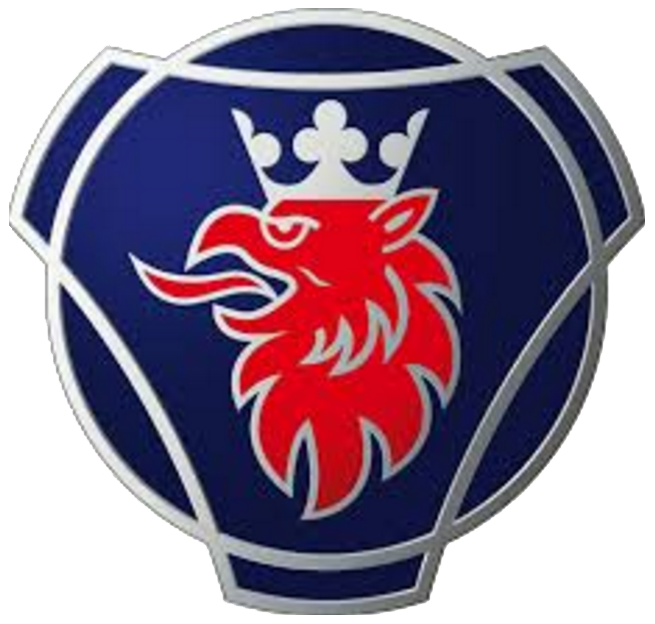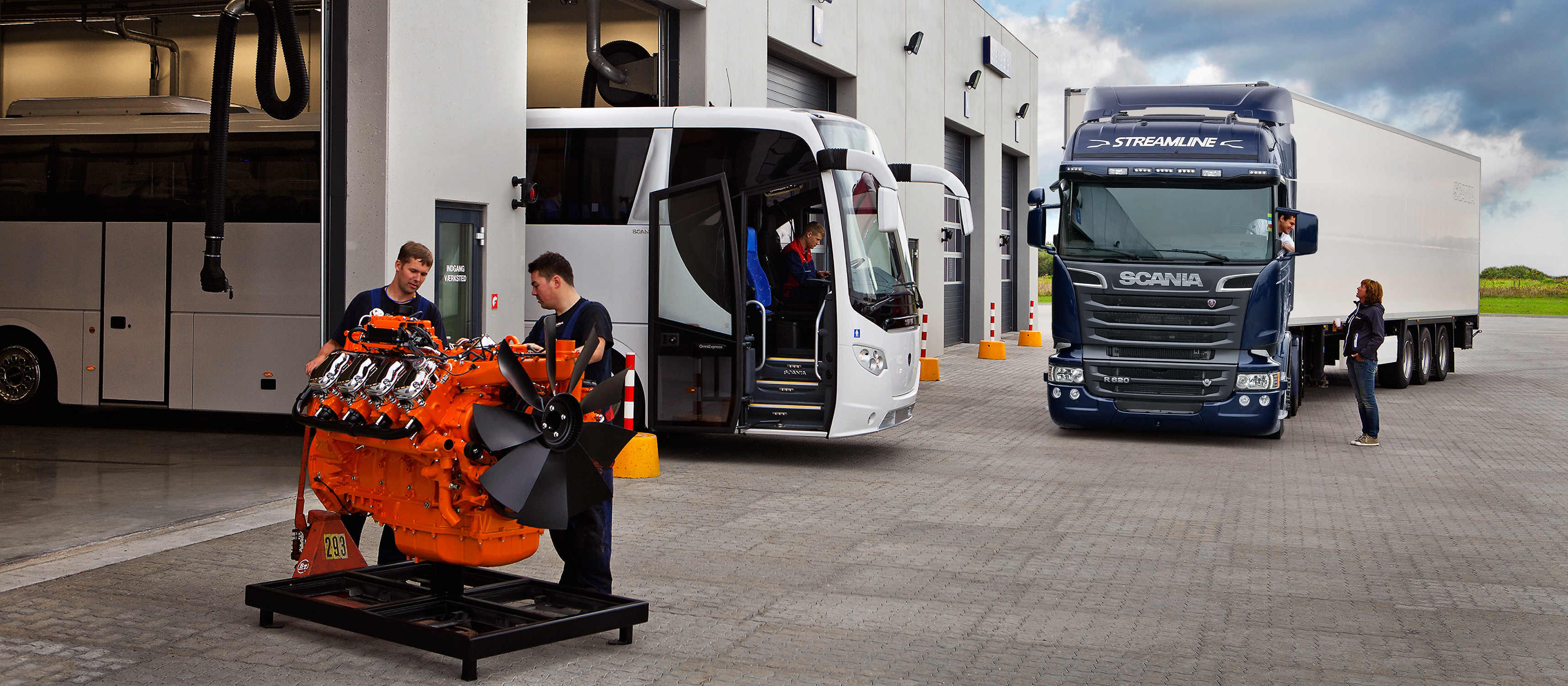From 2012 Scania will offer a global range of engines that will be used for all emissions standards worldwide. From a UK perspective this will mean access to an extended range of Euro 5 and EEV engines with SCR technology.
The complete line-up of UK engines, which can operate on up to 100% biodiesel, will be as follows:
| Engine | Power | Torque | Emission level | Emission technology | Application |
| 9-litre | 230 hp | 1,050 Nm | Euro 5, EEV | EGR | Truck, bus/coach |
| 250 hp | 1,150 Nm | Euro 5 | SCR | Truck | |
| 280 hp | 1,400 Nm | Euro 5, EEV | EGR | Truck bus/coach | |
| 310 hp | 1,550 Nm | Euro 5 | SCR | Truck | |
| 320 hp | 1,600 Nm | Euro 5, EEV | EGR | Truck bus/coach | |
| 360 hp | 1,600 Nm | EEV | EGR | Truck bus/coach | |
| 13-litre | 360 hp | 1,850 Nm | Euro 5 | EGR | Truck, bus/coach |
| 360 hp | 1,850 Nm | Euro 5 | SCR | Truck | |
| 400 hp | 2,100 Nm | Euro 5 | EGR | Truck, bus/coach | |
| 400 hp | 2,100 Nm | Euro 5, EEV | SCR | Truck | |
| 440 hp | 2,300 Nm | Euro 5 | EGR | Truck, bus/coach | |
| 440 hp | 2,300 Nm | Euro 5, EEV | SCR | Truck | |
| 440 hp | 2,300 Nm | Euro 6 | EGR, SCR | Truck | |
| 480 hp | 2,400 Nm | Euro 5 | SCR | Truck | |
| 480 hp | 2,500 Nm | Euro 5 | EGR | Truck, bus/coach | |
| 480 hp | 2,500 Nm | Euro 6 | EGR, SCR | Truck | |
| 16-litre | 500 hp | 2,500 Nm | Euro 5, EEV | SCR | Truck |
| 560 hp | 2,700 Nm | Euro 5 | SCR | Truck | |
| 620 hp | 3,000 Nm | Euro 5 | SCR | Truck | |
| 730 hp | 3,500 Nm | EEV | SCR | Truck | |
The in-line engines in the range will be based on the latest platform introduced in 2007 with technologies to meet Euro 5 and Euro 6 emission requirements. Scania’s V8 engine range will be available worldwide and for all current emission levels.
Scania’s two initial Euro 6 engines (440 and 480 hp) feature a combination of EGR and SCR technology and are suitable for long-haulage and construction work.
The range of sixteen Euro 5 engines spans from 230 to 620 hp. Eleven EEV engines between 230 and 730 hp include one ethanol and two gas/biogas versions. To suit their own particular operational requirements, Scania customers can choose between EGR and SCR technology.
The latest engines in the range have a torque-to-power ratio of around 5, which in combination with a carefully matched gearbox and rear axle ratio results in very good driveability. Full torque is generally delivered from as low as 1,000 rpm, which means that the engines have a wide useful rev band and that gear changes are kept to a minimum. In addition, the engines respond rapidly to the driver’s commands in all situations, signalling that the vehicle is on top of its task with a surplus of power available whenever needed.
“In addition to meeting the requirements of operators worldwide, this comprehensive selection of engines, power outputs, emission technologies and transmissions will provide UK operators with the widest possible choice in terms of powertrain specification,” says Martin Hay, Truck Sales Director for Scania (Great Britain) Limited. “As such, this will enable a vehicle’s performance to be optimised for any given application, thereby reinforcing Scania’s commitment to provide its customers with the best possible operating economy and efficiency at all times and in all situations.




